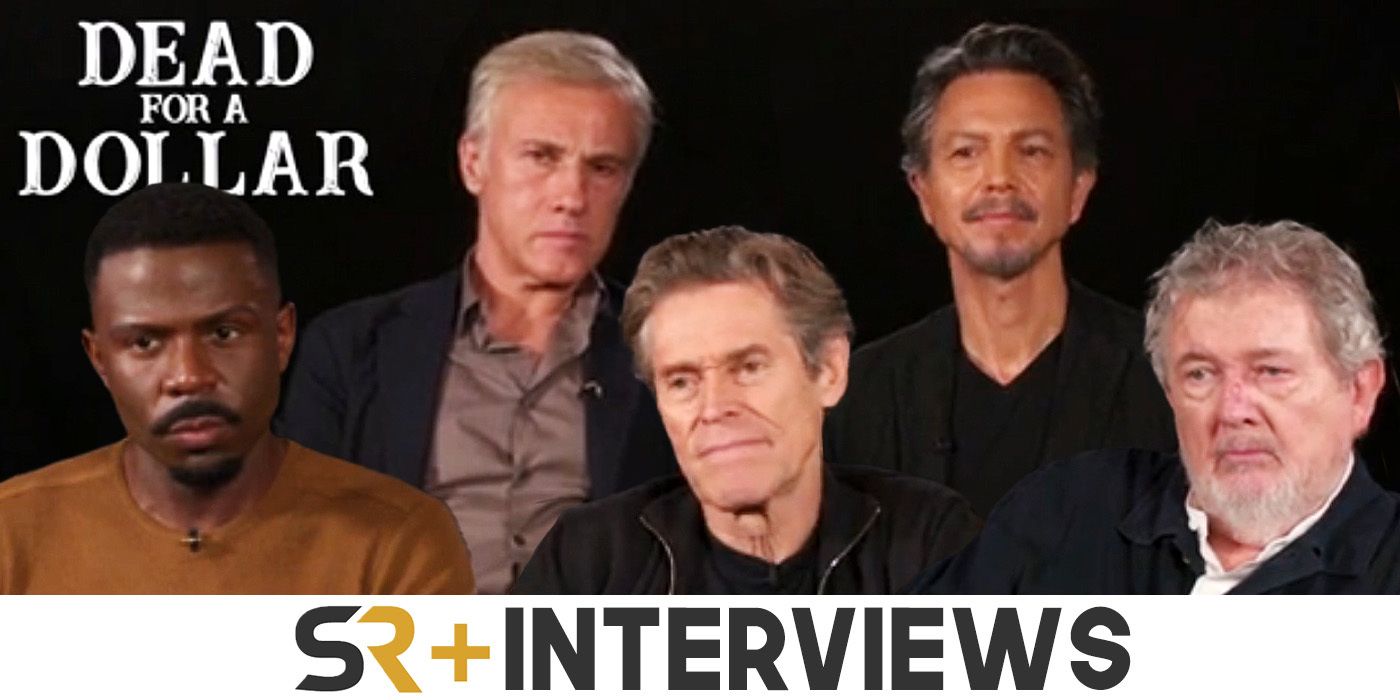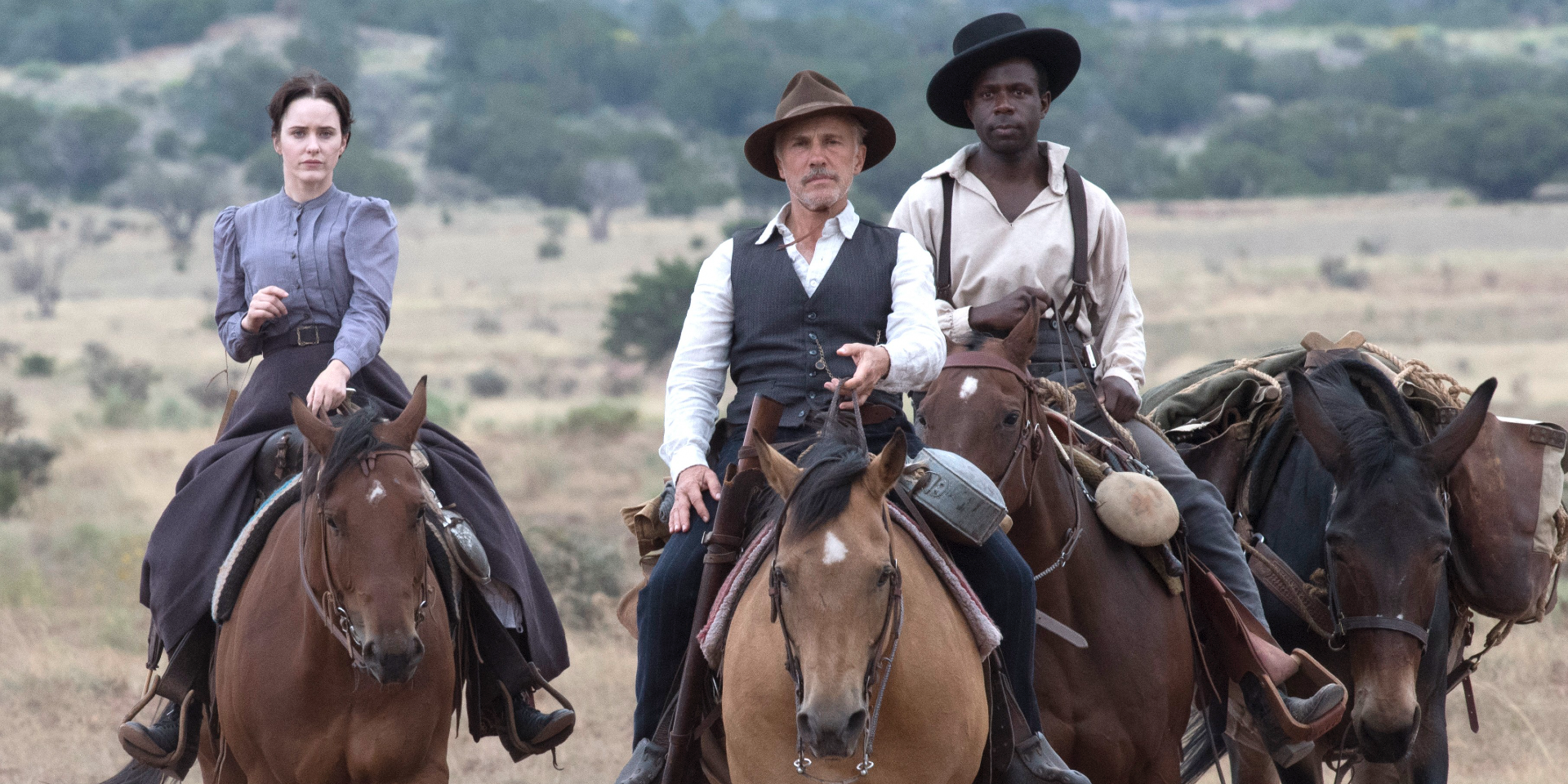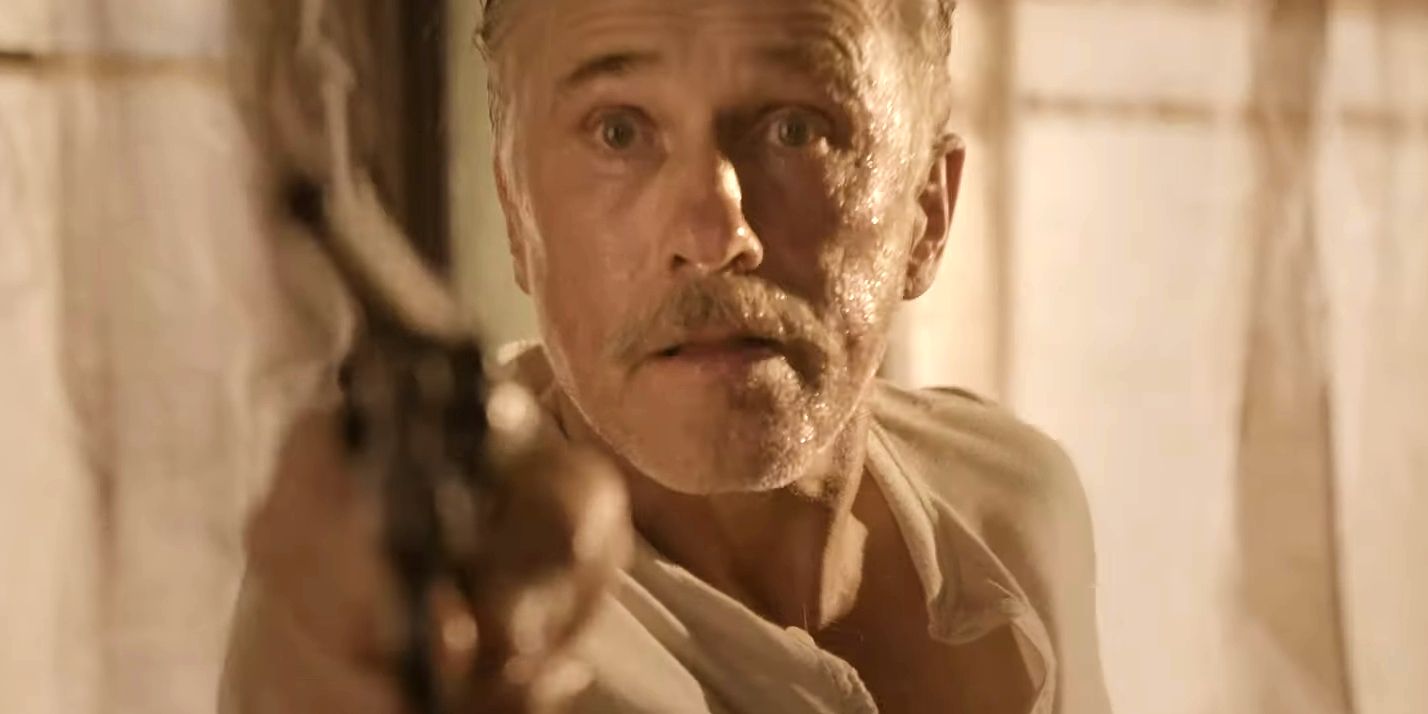Dead for a Dollar is a new Western from acclaimed writer and director Walter Hill that reaches equally into the modern day and ancient mythology. Despite a classically Western look and feel, the film offers an updated take on racial themes and female characters while also taking story cues from ancient Greek works. Despite being shot in just twenty-five days, Dead for a Dollar makes the most of a tight schedule by leaning into those character moments and classic themes.
The story of Dead for a Dollar revolves around bounty hunter Max Borlund (Christoph Waltz) as he and his military companion Sergeant Poe (Warren Burke) travel into Mexico to retrieve Rachel Kidd (Rachel Brosnahan), who is believed kidnapped. The pair find adversity in the form of dangerous men Tiberio Varga (Benjamin Bratt) and the outlaw Joe Cribbens (Willem Dafoe), whom Borlund previously sent to prison. With danger in the air and things not quite as they seem, Borlund and Poe must do their best to survive with their honor intact.
Warren Burke, Christoph Waltz, Benjamin Bratt, Willem Dafoe, and Walter Hill spoke with Screen Rant about the characters of Dead for a Dollar and the inspiration for the story.
Cast & Director Talk Dead for a Dollar
Screen Rant: I wanted to start with a question for Warren. Something I really enjoyed bout your character is that you are, I think, maybe the most emotionally relatable because you're caught between doing a job and trying to help out a friend. How was it to play that in this very morally ambiguous landscape with all of these loose cannons?
Warren Burke: I'm not going to lie, it was pretty complex. It was something that I really wanted to take my time with. Walter definitely helped me through it, and a lot of conversations I would have with certain—even Christoph, the conversations we had, getting more and more in-depth even with our relationship on camera, was great. But I took it as a challenge that I was very much up for, and did a lot of research, a lot of work.
I think about my very first acting teacher, his name's Harvey Solin, way back when. He said "People problems are actor problems, and actor problems are people problems." So upon coming to Santa Fe, I had to make sure I was good to take on this new role and make sure I was in a good space, and I really loved it. So Alonzo Poe can deal with all this contrast that he may be dealing with. But it was an absolute pleasure. So much fun.
Christoph, something I really enjoyed about your performance was - it's very small, but the way he tipped his hat. I feel like you could get a sense of how your character felt about who he was speaking with. I'm curious, are you researching how people tipped their hats back then, or are you watching Westerns for inspiration, or is this your actor brain coming up with these little eccentricities?
Christoph Waltz: I watched this documentary series on tipping hats, and it was really inspiring. You know where the gesture is really coming from, and that's as far as my research goes on tipping hats. It's from lifting the visor on the helmet. And so in our story, that is the most appropriate analogy, I think. You who your face to, actually, your opponent. So that he knows what he - or she, but the knights usually were male when they jousted - to show your opponent who you are.
Willem and Benjamin, from the moment you show up onscreen, we kind of know that you're trouble. I'm curious, when you're playing a character who is presented as a villain in that way, how much empathy do you have to have in order to do such a good job with it?
Benjamin Bratt: It sounds corny to say, but you have to try to imbue the character - if you're serious about what you do - with some kind of honesty. Westerns are filled with archetypes, so yes, I understood the assignment. I'm a version of the bad guy, but I wanted to bring a little more complexity to it to the extent that I could in what amounts to a handful of scenes. But that credit really has to go to Walter, because it's on the page.
One thing Walter has done is create something quite familiar and yet, in the way he's populated the story with this particular cast, there's a lot of progressiveness, I would say, in terms of reflections of what society is, what it was then, where we've come now. Some of the issues we were battling then in terms of gender issues and racism are still very much front page for us today, and he does it in a subtle way that is not a distraction, but actually lends quite a degree of depth to the story. As I said, built within something we have grown to expect. The story, really, of a battle between good and evil, or moral righteousness and not so much.
And Willem, how about you?
Willem Dafoe: For me, I don't know. I don't have an overview, usually, and I don't really know a character until you get there. So you play the scenes, you put yourself in the situation, you've got your imagination, you do some research, maybe, that makes you learn something that has a shift of what you thought before, and then you play. So, when you say, kind of imply that he's trouble, that's not surprising, but that's not my job. My job is to react to situations. So I'm not thinking so much about the judgment other people have of him.
Walter, I read an interview where you said you took a lot of inspiration from different stories, and even from Homer, from Greek mythology. Was there a specific reference point for you?
Walter Hill: Well, I made no disguise about it. This story parallels The Iliad in many ways. A corrupt power figure hires a mercenary to find a presumed abducted wife, and that turns out not to be true upon closer examination, and all hell breaks loose when the pursuit is joined. So, as I said to our cast, we know the story works. The story's worked for two thousand, six hundred years now. But we obviously are embellishing it. The only thing I can remember saying in that vein, I think I said once to Christoph that he was Odysseus, not Achilles, but other than that, there were no classical references I can remember.
About Dead for a Dollar
Veteran bounty hunter Max Borlund heads deep into Mexican territory to find and return Rachel Kidd, the wife of a wealthy businessman. After learning she actually fled from the abusive marriage, Max faces a choice: finish the job he's been hired to do, or stand aside while ruthless mercenary outlaws and his longtime rival close in on a town that's been his temporary sanctuary.
Dead for a Dollar releases in theaters on September 30th.



